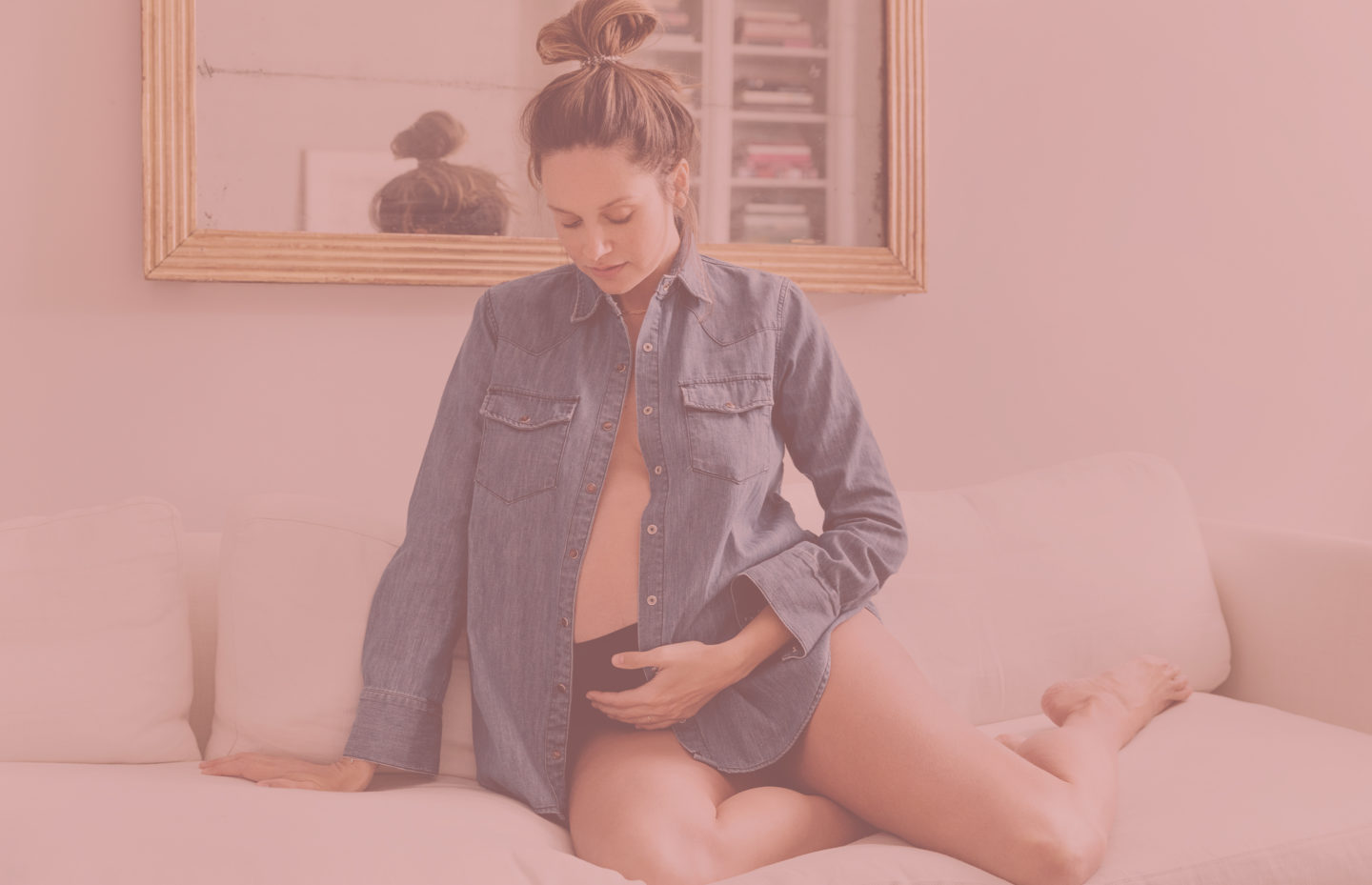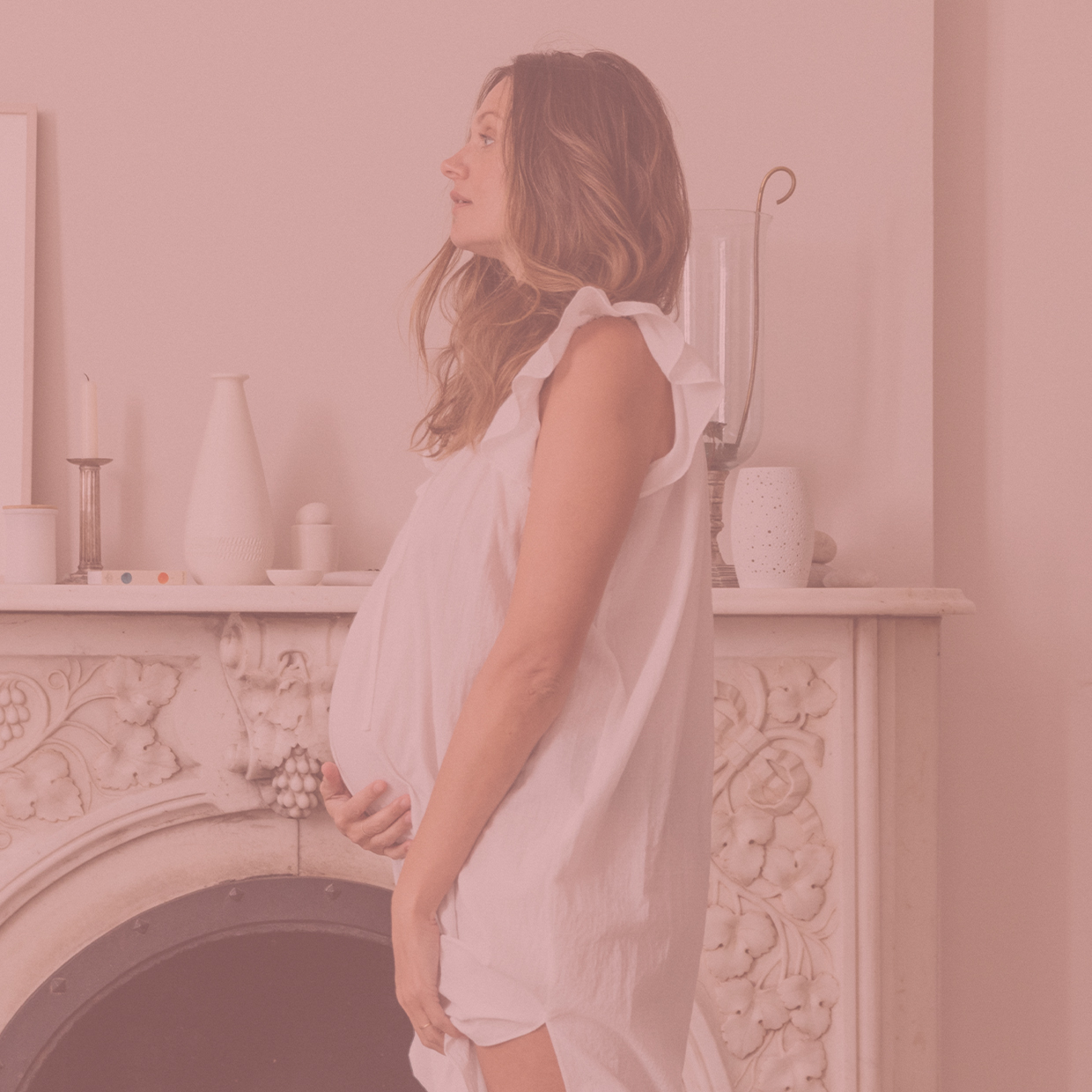As we adjust to the landscape of our new normal there are so many questions to be had, especially when it comes to pregnancy. In hopes of bringing some relief and answers to the pressing questions on our minds, we hosted an intimate digital gathering in partnership with Cyndi Ramirez of Chillhouse, Ashleigh Stone of Poolside, and Sarah Levy of Y7. The talk, led by Jada Shapiro, founder of boober and Birth Day Presence, in conversation with Dr. Jacqueline Worth, OBGYN and co-author of The New Rules of Pregnancy, and 13 awesome pregnant women from our community was intended to bring people together to ask questions, voice their concerns and give access to experts.
In an effort to mitigate worry and provide support plus guidance through this incredibly fast-evolving unprecedented situation, we rounded up the most helpful tips from this moving discussion with Dr. Jacqueline Worth, OBGYN.
AT RISK
In general are pregnant people more susceptible to the coronavirus?
Dr. Worth: Great news, there is no evidence that pregnant women are any more susceptible to coronavirus than anyone else. However, in the British College of OB-GYN, they put pregnant women in the vulnerable category out of extreme caution as it’s known that some pregnant women are more susceptible to viral infections. Therefore we’re going to treat them as if they’re vulnerable, but there’s absolutely no evidence that I’ve seen, or know of at this time that has determined that pregnant women are in fact more susceptible. Additionally, there’s no evidence that it passes in any way to the baby through vertical transmission or the placenta blood.
PRENATAL APPOINTMENTS
Should appointments be held in-person or via telemedicine? What do you suggest?
Dr Worth: Essentially, we’ve set up an alternating visit model individualized for each patient. In addition to social distancing, I suggest to all my patients that we follow exactly what Governor Cuomo explains in his press conferences in terms of prenatal care visits.
In my practice, we’ve taken several precautions in the office such as separating the chairs and spacing out appointments. Plus, we’re suggesting (if possible) for patients to come in a family car to avoid public transportation.
In terms of telemedicine. It’s a work in progress and an entirely different thing. The appointments are not as efficient since I don’t have my hands on the belly and I’m not able to listen to the baby’s heartbeat. That said, I know my patients incredibly well and have a curriculum we review at each visit from fetal testing to upcoming lab work and answer any questions related to the pandemic.
What tools can women have at home to assist with a telemedicine visit?
Dr. Worth: Typically a prenatal visit would include checking the baby’s heartbeat, plus the mom’s blood pressure, protein & glucose levels, temperature, and weight. That said, most of those things can be done at home. I’m asking my patients to get a blood pressure cuff, scale, thermometer, and dipsticks on Amazon so they can take their own vitals. In the absence of being able to check the fetal heart rate, I inquire about the most recent sonogram plus we talk about fetal movement.
Should women get a doppler at home?
Dr. Worth: If you have a doppler and are comfortable using it, this can be a great tool. However, my experience with the doppler is tricky and I worry someone might not find the heartbeat, then be distraught and unable to get a quick answer to confirm everything is okay. I would suggest bringing your doppler to your doctor’s office and practice using it with your doctor or midwife before going at it alone. I’m ordering a few to have on hand at my office to teach patients for this reason.
LABOR
There was a ruling related to partners at the hospitals during birth which has been reversed but in the event of a partner not being present for the birth how would you best deal with this?
Dr. Worth: This is a huge issue weighing heavily on everyone’s mind. I’ll start by saying, it’s almost unimaginable to be asked to birth, without anybody there to support you. Which is symbolic of how serious this pandemic is and how many people are dying or at risk. While the original order to disallow partners from the hospital has been lifted if for some reason a partner is not able to be present for the birth they can FaceTime into it. We have also had doulas on laptops that have stayed up all night with the mother. Though unusual, it was incredibly supportive and helped the patient have a lovely birth.
What are the best options for birth at this time: C-section, labor at home or induction?
Dr. Worth: There are three ways to come to the hospital: Active labor, a scheduled C-section or labor induction.
The difference between labor induction and spontaneous labor is that induction labor generally means a patient will spend more time laboring — about 20 hours on average. Whereas spontaneous active labor is about 6 hours of laboring which decreases your exposure to the hospital. Additionally, labor that starts with medicine is typically more difficult as the mother is attached to a lot of machines. If you’re a patient who wants a more natural approach to birth, it’s particularly challenging to start your labor this way, lying in bed.
In China, during the epidemic, there were many more C Sections performed. The upside to a C-section is that birth is accomplished in about 45 minutes so the patient is potentially at the hospital for less time. Please note, I’m not recommending a C-Section because of COVID.
Are you recommending that people actually labor home even much longer than you normally would?
Dr. Worth: When you’re in the hospital, you will be in a private room, safe and not exposed. I’m extremely wary in our practice when patients want to labor at home for an extended period as there’s no way to know the baby’s status or mom’s levels. I recommend patients come into our office where we put them on the fetal monitor to check vital signs and do an exam. From there we can determine how long they want to stay out of the hospital…if that’s their personal goal.
I want to make clear that I’m very hesitant to tell women to stay home and not be checked in case, God forbid, something were to go wrong. While rare, I prefer to be cautious.
What are the protocols for a pregnant woman to walk into any random hospital, if she decides to leave the city last minute?
Dr. Worth: Any pregnant patient who walks into the labor floor of a hospital will be cared for by that hospital and not be turned away.
If you feel that you may need to leave suddenly, ask your doctor or your midwife for a copy of your medical records in advance, so you have a recent sonogram and labs on hand. Upon arrivals, explain that you had to move away because you were scared and could they please help you.
That said, I would recommend having some kind of connection with the place that you go such as a friend or family. There have been reports of neighboring towns around New York City being hostile towards the refugees from New York.
If a mother tests positive or are having symptoms when they come to give birth, how are you taking care of them? Is there isolation and what happens with the baby post-birth?
Dr. Worth: Given that policies and mandates are changing daily, this would likely need to be addressed on a case by case basis. That said, fortunately, none of my pregnant patients have been COVID positive or sick.
However, should a mother in labor be sick, I would have that patient wear a mask to protect the staff and anyone else from catching the disease. Plus they would labor in an isolation room.
Post-birth, the current guidelines state to separate the baby from the mother if she is COVID positive to protect the baby’s health. Plus, they recommend the baby be provided with pumped breast milk by a healthy person to avoid having the mom cough and breathe on the baby.
ADDITIONAL PRECAUTIONS
What should pregnant patients do to protect themselves when going outside?
Dr. Worth: Wear a mask when you go out and separate yourself by six feet from anybody else.
Also, Governor Cuomo talked about something called Matilda’s Law which he named after his mother, and is intended for the elderly and the most vulnerable. It’s recommended for someone over 70 or immune-compromised not to leave the house or have anyone over. If you consider pregnant women as being in the vulnerable category, then I would suggest following this rule.
Lastly, if someone must come over then both the elderly or pregnant person plus the visitor should be wearing masks and be at least six feet apart. Ideally, they should keep the visit brief as well.
As for masks, are you able to reuse them? If a pregnant person can’t get a mask, is a bandana, okay?
Dr. Worth: Masks are in short supply and hard to come by. Therefore wearing a bandana or any fabric over your face is better than nothing.
IMMUNITY & VITAMINS
What can we do to stay healthy and boost our immune system?
Dr. Worth: Overall the goal is to stay rested and healthy by eating well and taking extra supplements. I’m getting lots and lots of sleep, more than ever before, and drinking tons of water to stay hydrated.
Personally, I take a little extra vitamin C, D, and Zinc every day. About 50 milligrams of Zinc or micrograms, 1000 milligrams of Vitamin C and 1000 to 2000 milligrams of Vitamin D.
My acupuncturist suggests taking elderberry syrup and manuka honey — are there any immunity building benefits to these ingredients?
Dr. Worth: Absolutely. Sounds fine to me. Although please remember that kids under age 1 can’t have raw honey.
Can too much vitamin D cause birth defects?
Dr. Worth: Testing for vitamin D goes back and forth but I test my patience for vitamin D regularly and whenever their levels are less than 20 or less than 30 I recommend supplementing with 1000 to 2000 milligrams daily which is a conservative recommendation as you don’t want to overdo things in pregnancy. Plus, taking a walk from time to time outside in a socially distant way to get some sunlight and fresh air is important.
POSTPARTUM HELP?
How do you suggest that support people such as a baby nurse or postpartum doulas come over after the birth?
Dr. Worth: I’ll start by saying these are special times and I believe this is a short term problem. But, for this immediate period, if I were a new mom with a new baby at home, I would not have anybody over. I realize it’s hard to imagine that and perhaps it’s not what you had planned, but as I told a patient yesterday who’d hired a baby nurse, you can do this alone. And, unless you can be 100% sure that your nurse has quarantined herself for at least two weeks and then doesn’t leave your home, it’s too much of a risk. Personally, I would not do it.
Additionally, I would not leave the house for a month, or six weeks. If a baby gets a fever in the first month of life, they’re at risk to get sepsis, because they are too young to have a strong immune system to fight infections. The last thing you want right now is to go into the ER and be at high risk of getting COVID.
All this to say, think about how much our lives have changed in ways that were incomprehensible a month ago and yet somehow we’re managing. As women, we’re resilient. We can do this. We are strong. You can care for your baby on your own as we navigate out of these uncertain times.
Boober is offering virtual doulas (to keep everybody safe), wherein they match people to postpartum doulas for support and virtual check-ins throughout the day. While not the same as in-person, hopefully, this can help make a mother feel less alone and offer some comfort and support.
Plus, Jada will be personally available if anyone has questions during the rest of your pregnancy and as you approach labor. Feel free to contact her directly at jada@getboober.com. Boober offers virtual support to new families by connecting them to 1-on-1 tele-health sessions for Lactation Support, Labor Support, Postpartum Care, and Mental Health Support. Right now they are offering 10% off your first Virtual Lactation Support Session with code VIRTUAL10.




